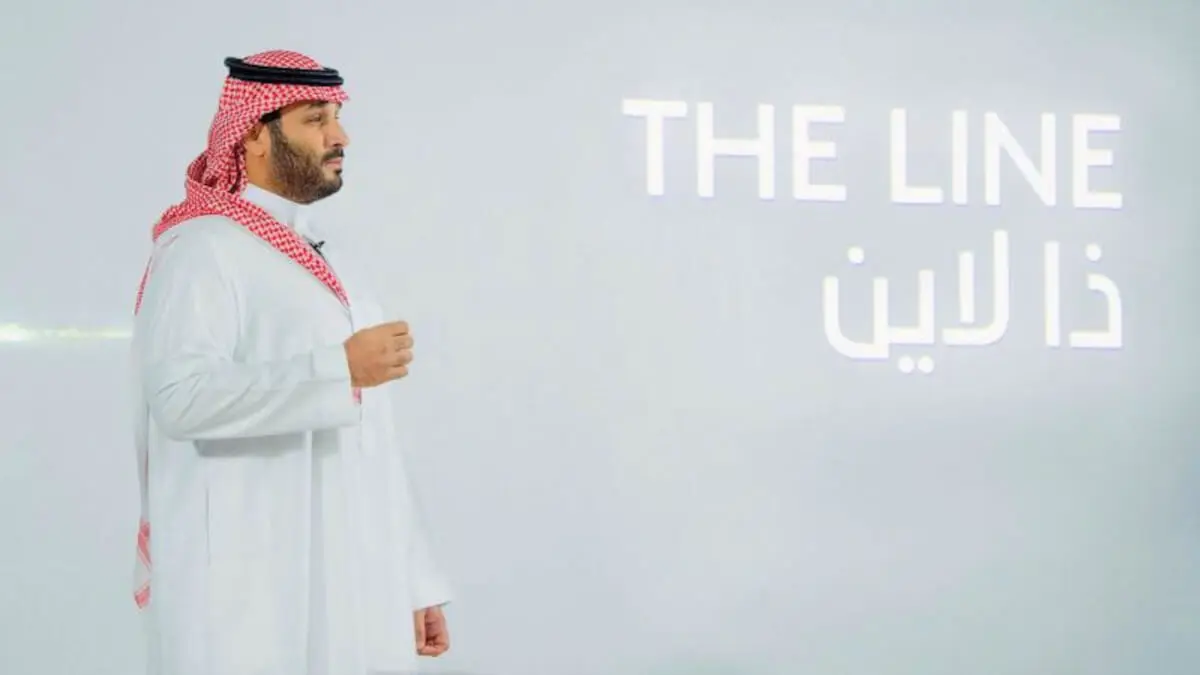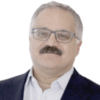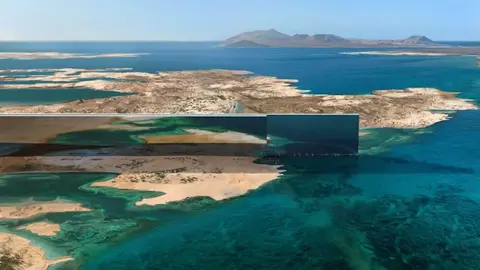NEOM revisited: how Saudi Arabia became more transparent

Saudi Arabia is a wealthy country by all standards. But one trillion dollars, which is the project’s presumed cost, remains a large amount, especially since the project has not attracted massive foreign investments.
It is not often that we hear the announcement of a huge project with a cost exceeding a trillion dollars; nor is it every day that such a project is reconsidered without drawing much attention. But this is exactly what happened with the exceptional Saudi project of NEOM.
For the sake of argument let us put aside the link between the NEOM project and Saudi Vision 2030. That vision, which constitutes Crown Prince Mohammed bin Salman’s project for profound change in the kingdom, is broader than NEOM.
There is no doubt that by economic standards and in terms of the expected cost of the project, NEOM is a giant initiative. But the project remains to a certain extent different from the overall goal of change sought by Saudi Arabia.
It is not known exactly how many Saudi nationals are employed in NEOM. However, the project has certainly drawn large numbers of expatriate workers in all capacities, whether as experts, technical workforce, consulting firms or contractors.
In its current state, considering that the project is reportedly still in its early stages, there is nothing preventing it from being reconsidered so as to adjust its content to recent world trends, especially those concerning investments and financing.
Saudi Arabia is a wealthy country by all standards. But one trillion dollars, which is the project’s presumed cost, remains a large amount, especially since the project has not attracted massive foreign investments.
It is true that global funds are flowing into Saudi Arabia, but these investments are mostly destined for energy-related industries, especially extraction and transportation of oil and gas and the refining of petroleum products.
These are proven sectors, including the new activities aimed at modernisation and the introduction of advanced and environmental technologies. A foreign investor could, at a later stage, invest in a futuristic city like “The Line”. But that would come after he discovers the project’s features and sees whether it is being built with Saudi money or not.
It is useful to read the recently-leaked details about NEOM’s budget cuts. Experts who were asked by Bloomberg about their views, praised the reduction measures. One commentator did not hesitate to say that this reduction is a sign of maturity.
In all major projects which aim to make a difference in a country, there is a degree of enthusiasm, especially in the initial stages, among their initiators. Due to the size of these super-gigantic projects, the time factor does eventually come into play.
Even Saudi Arabia, an exceptionally rich country, cannot allocate a trillion dollars or more from the first day of the project’s launch. With time, those responsible for it begin to notice an increasing bill due to the fluctuation in the prices of raw materials involved in construction and the cost of labour.
They also notice the project under way tends to exert pressure on the financing of other projects, such as those within the country’s overall development plans. It is too early to assess the cuts since Riyadh has not yet disclosed the size of the reductions being considered for NEOM.
However, the leaked reports talk about a 20 percent cutback. Parts of the project have been suspended and these could be its most costly aspects. This means a shift of focus to other aspects which could provide a better yardstick for the project’s success.
The project’s authors have cleverly used Saudi Arabia’s relationship with Bloomberg News to publish reports about some (or many) of NEOM’s details that are being reconsidered.
A Saudi company was about to enter into a media partnership with Bloomberg before that partnership was limited to the economic side of the agency’s work in what became later known as Al-Sharq Business with Bloomberg, a media project pursued by Riyadh side by side with Al-Sharq satellite TV and website projects.
It was an innovative joint venture with a US media institution that enjoys the benefits of freedom of opinion as well as the ability to raise sensitive issues about the region and the kingdom’s relationship with the rest of the world.
Saudi Arabia took what it needed from the relationship with Bloomberg and the latter found no reason to disengage with Saudi Arabia as long as the cooperation was limited to economic news and reports.
A compromise called “Al-Sharq Business with Bloomberg” was born.
But Saudi Arabia has changed politically in recent years and has steered away from playing a major role in the region.
It has chosen instead to embark on an unprecedented processes of settling disputes with other nations. It has resolved its conflicts with Iran, Turkey and Qatar, and is set to withdraw from the war in Yemen by pressuring the country’s internationally-recognised government into reaching a settlement with the Houthis.
It does not want to push matters to the brink of confrontation over some issues in Yemen, especially regarding key political forces in the south. Today, Saudi Arabia does not comment on what is happening in Syria nor in Lebanon.
It contents itself with making vague references about the need to reach a settlement in the Gaza war so as to end the bloodshed there. But it does delve into the details of post-war scenarios. These include the nature of the grand settlement scheme including recognition of the Palestinians’ right to an independent state and overcoming the inhibition of normalising ties with Israel. Saudi Arabia has also distanced itself from Egyptian political and economic issues.
It also set a distance from Sudanese affairs and steered away from its mediation bid, refraining from exerting pressure on either side in the war, the army and the Rapid Support Forces. There are many other examples of this approach.
This tendency towards disengagement from outside conflicts is explained by a Saudi desire to keep its focus on home projects, the placing of investments and benefitting from the huge revenue that has accrued from the rise in energy prices after the outbreak of the Ukraine war.
With the exception of occasional talk about normalisation with Israel, the mention of Saudi Arabia is associated these days with news of business deals, projects and investments. Even from this economic perspective, declarations by Saudi Energy Minister, Prince Abdulaziz bin Salman, have been less frequent and often limited to occasional statements issued by the OPEC+ regarding oil output.
In fact, many of the progress reports about the Saudi economy are left to Saudi ministers from outside the decision-making circle, in prepared remarks they make at economic forums and seminars.
It is in this context, that comments paving the way for the downsizing of NEOM were made. Bloomberg virtually monopolised the leaks from Saudi officials and commentators whose names it did not disclose. Saudi Finance Minister, Mohammed Al-Jadaan, and senior officials of his rank as well as some heads of major companies, would from time to time confirm Saudi Arabia’s interest in conducting periodic reviews of its projects.
Then there would be another cycle of more detailed leaks, leading up to the present day rumours about a 20 percent reduction in the size of NEOM, with talk of decisions wavering between reconsidering important details in the project and suspending some of its components completely.
Now the picture has become clearer since it is understood that the Saudi leadership would want to direct its available resources in a slightly different way. However, what is interesting here is the method used to unveil the review and make sure that it does not cause major ripples, domestically, regionally and globally, both in the political and economic spheres.
This is an important step towards mastering the presentation of news, in a far cry from what we used to witness years ago in Saudi Arabia, when the eagerness to draw attention to the major changes in the conservative kingdom were a priority. This also explains why some are now praising Saudi maturity.
The full assessment of what has been achieved or not achieved in Vision 2030 will happen before too long. There is no doubt that Saudi Arabia’s has proceeded with well-calibrated transparency following a particular pace, timing and way of informing others in order to show that its perception of the NEOM project is significantly different today from what it was at the time of its launch.
This is due to an objective assessment of what is possible and what is not, both financially and from the vantage point of investments. This thoughtful transparency is useful and should become the way Saudis and the rest of the world are informed about major changes in the management of economic affairs in the kingdom, considering that Riyadh has decided to distance itself from politics.
Haitham El Zobaidi is the Executive Editor of Al Arab Publishing House.


